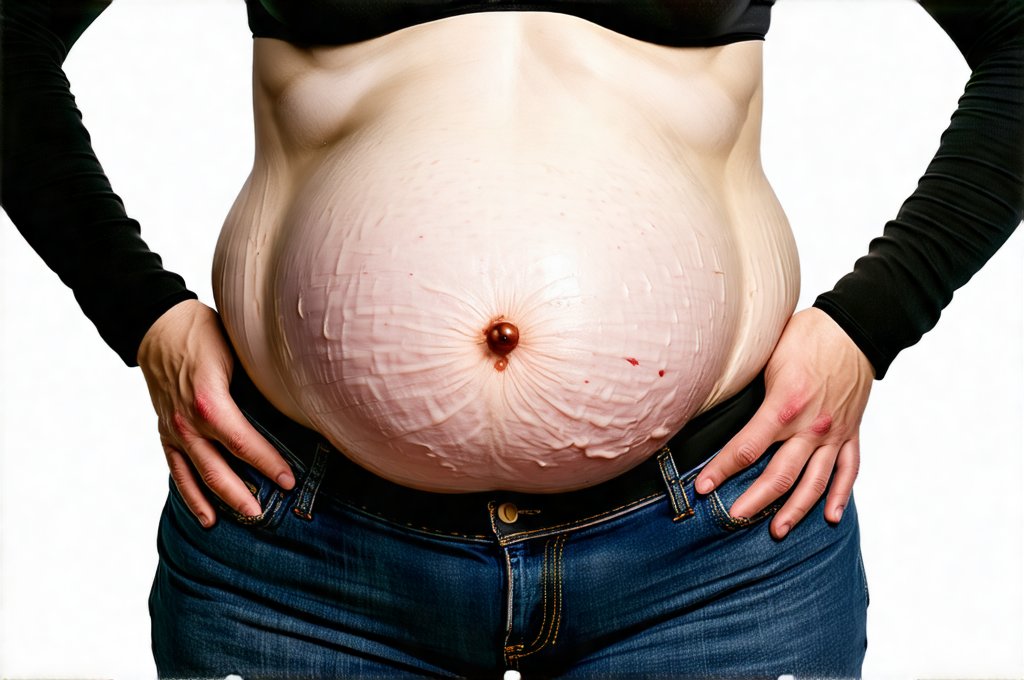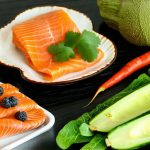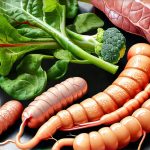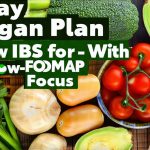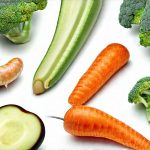Switching to a vegan lifestyle is often motivated by ethical, environmental, or health concerns – all incredibly valid reasons to embrace plant-based eating. Many anticipate feeling lighter, more energetic, and healthier as they remove animal products from their diet. However, surprisingly, some individuals experience bloating when first transitioning. This can be disheartening, leading to questions and even doubts about whether veganism is right for them. It’s crucial to understand that bloating isn’t necessarily a sign of something going wrong; it’s often a temporary adjustment period as your digestive system adapts to a significant change in dietary fiber intake and food composition.
This article will delve into the common reasons why you might feel bloated after adopting a vegan diet, offering explanations grounded in physiological processes and practical strategies for managing discomfort. We’ll explore how drastically increasing fiber consumption affects gut bacteria, how certain plant-based foods can contribute to gas production, and what steps you can take to ease the transition and minimize bloating over time. Remember that everyone’s body reacts differently, so finding what works best for you is key – this article aims to provide a solid foundation of understanding and empower you to navigate these initial adjustments with confidence.
The Fiber Flood: A Gut Adjustment Period
One of the most significant changes when switching to veganism is the dramatic increase in dietary fiber. Animal products contain virtually no fiber, while plant-based foods are rich in it. This isn’t inherently bad – fiber is essential for digestive health, promoting regularity and feeding beneficial gut bacteria. However, if your body isn’t accustomed to processing large amounts of fiber, it can lead to bloating, gas, and discomfort. Your gut microbiome (the community of microorganisms living in your digestive tract) needs time to adapt and develop the enzymes necessary to effectively break down these fibers.
Think of it like training a muscle. If you suddenly ask a previously unused muscle to lift heavy weights, it will likely be sore and strained. Similarly, your gut needs gradual exposure to increased fiber intake. Suddenly introducing large quantities of beans, lentils, fruits, vegetables, and whole grains can overwhelm the digestive system, resulting in fermentation – where undigested fibers are broken down by bacteria in the colon, producing gas as a byproduct. This is perfectly normal, but it’s also what causes bloating.
To mitigate this “fiber flood,” gradual introduction is key. Start with small portions of high-fiber foods and slowly increase your intake over several weeks. Pay attention to how your body responds and adjust accordingly. Also, ensure you’re drinking plenty of water; fiber absorbs water, and inadequate hydration can exacerbate constipation and bloating. Consider keeping a food diary to track what you eat and any associated symptoms – this helps identify trigger foods or patterns. If you struggle with consistent digestive issues, it might be useful to explore why you might react to certain healthy foods.
Food-Specific Bloating Triggers in Vegan Diets
While overall fiber intake is often the primary culprit, certain plant-based foods are more likely to cause bloating than others. These aren’t necessarily “bad” foods; they’re simply components that some people find harder to digest. – Cruciferous vegetables (broccoli, cauliflower, cabbage, Brussels sprouts) contain raffinose, a complex sugar that can be difficult for the gut to break down, leading to gas production. – Legumes (beans, lentils, chickpeas) also contain oligosaccharides, another type of complex carbohydrate fermented by gut bacteria. – Fruits high in fructose (apples, pears, mangoes) can cause bloating in individuals with fructose malabsorption.
It’s important to note that cooking methods can significantly impact digestibility. Soaking beans overnight and thoroughly rinsing them before cooking reduces oligosaccharide content. Steaming or lightly cooking cruciferous vegetables instead of eating them raw makes them easier to digest. Furthermore, combining bloat-inducing foods with other ingredients can help. For example, adding a pinch of cumin to beans can aid digestion, while pairing apples with a source of fat (like almond butter) slows down fructose absorption. If you’re experiencing discomfort after meals, it is important to consider how long should you wait before lying down.
Finally, individual sensitivities play a role. What causes bloating in one person may not affect another. Paying attention to your body’s signals and identifying personal trigger foods is crucial for long-term comfort. Don’t eliminate entire food groups unnecessarily; experiment with portion sizes and preparation methods to find what you can tolerate.
Optimizing Digestion Through Lifestyle Adjustments
Bloating isn’t always solely about the food itself; lifestyle factors play a significant role in digestive health. Here are some strategies to optimize digestion and minimize bloating:
- Chew thoroughly: This sounds simple, but it’s often overlooked. Chewing breaks down food mechanically, making it easier for your stomach to process. It also stimulates saliva production, which contains enzymes that begin the digestive process.
- Eat mindfully: Avoid eating on the go or while distracted. Slowing down and focusing on your meal allows you to savor each bite and pay attention to feelings of fullness, preventing overeating.
- Manage stress: Stress can significantly impact digestion. When stressed, your body diverts energy away from digestive processes, leading to slower gut motility and increased bloating. Incorporate stress-reducing activities like yoga, meditation, or spending time in nature.
Furthermore, consider the timing of your meals. Eating large meals close to bedtime can disrupt sleep and hinder digestion. Be mindful of how quickly you eat—rushing through a meal can lead to swallowing excess air, contributing to bloating. If evening habits are affecting your digestive system, it is important to investigate why your evening tea might be contributing to reflux.
The Role of Gut Microbiome Support
As mentioned earlier, your gut microbiome plays a critical role in digesting plant-based foods. Supporting its health is essential for reducing bloating and improving overall digestive function. – Probiotics: These are live microorganisms that can help populate the gut with beneficial bacteria. You can obtain probiotics through fermented foods (like sauerkraut, kimchi, or vegan yogurt) or supplements.
– Prebiotics: These are types of fiber that feed existing beneficial bacteria in your gut. Good sources include garlic, onions, leeks, asparagus, and bananas.
However, introducing prebiotics too quickly can actually worsen bloating if your microbiome isn’t ready for them. Start with small amounts and gradually increase intake. It’s also important to remember that probiotic supplements aren’t a one-size-fits-all solution; different strains have different effects. Consult with a healthcare professional to determine which probiotics might be most beneficial for you. If you suspect your discomfort is related to GERD, it’s worth exploring Can GERD make you feel short of breath after meals?
Identifying Potential Food Intolerances or Sensitivities
Sometimes, bloating can indicate an underlying food intolerance or sensitivity beyond the typical fiber adjustment period. – Gluten is a common trigger for some individuals, even though it’s not inherently present in vegan diets (unless consuming products containing it). Cross-contamination can occur if eating processed vegan foods. – Soy can cause digestive issues for those with soy sensitivities.
If bloating persists despite dietary adjustments and lifestyle changes, consider exploring potential food intolerances. An elimination diet – where you temporarily remove suspected trigger foods from your diet and then reintroduce them one at a time – can help identify culprits. However, it’s best to do this under the guidance of a registered dietitian or healthcare professional. Self-diagnosing can be inaccurate and may lead to unnecessary dietary restrictions. It is also important to consider why GERD can make you feel like something is stuck. Remember that bloating is often temporary during the transition phase, but persistent discomfort warrants further investigation. If you find yourself struggling with a sore throat and digestive issues, it might be worth investigating why you might experience a sore throat without heartburn.

